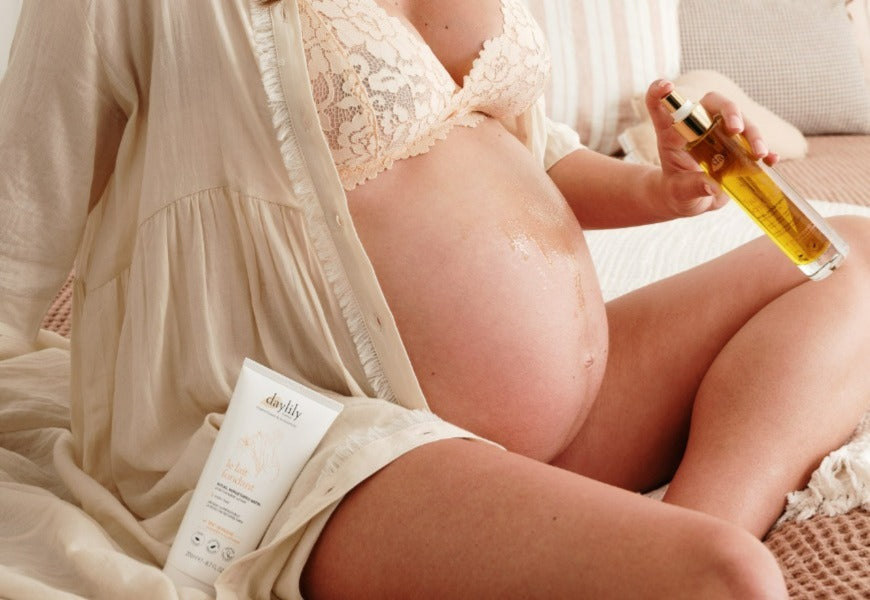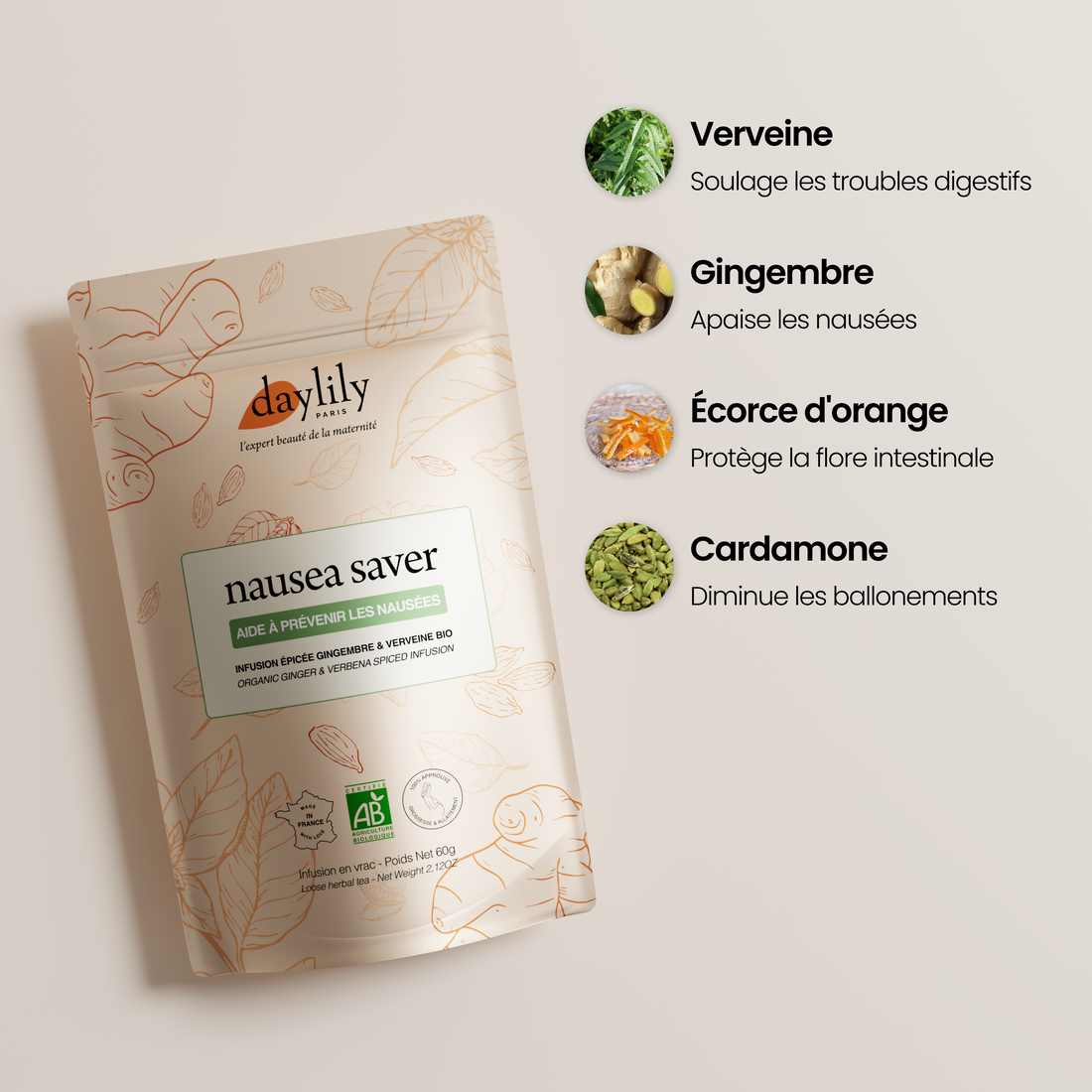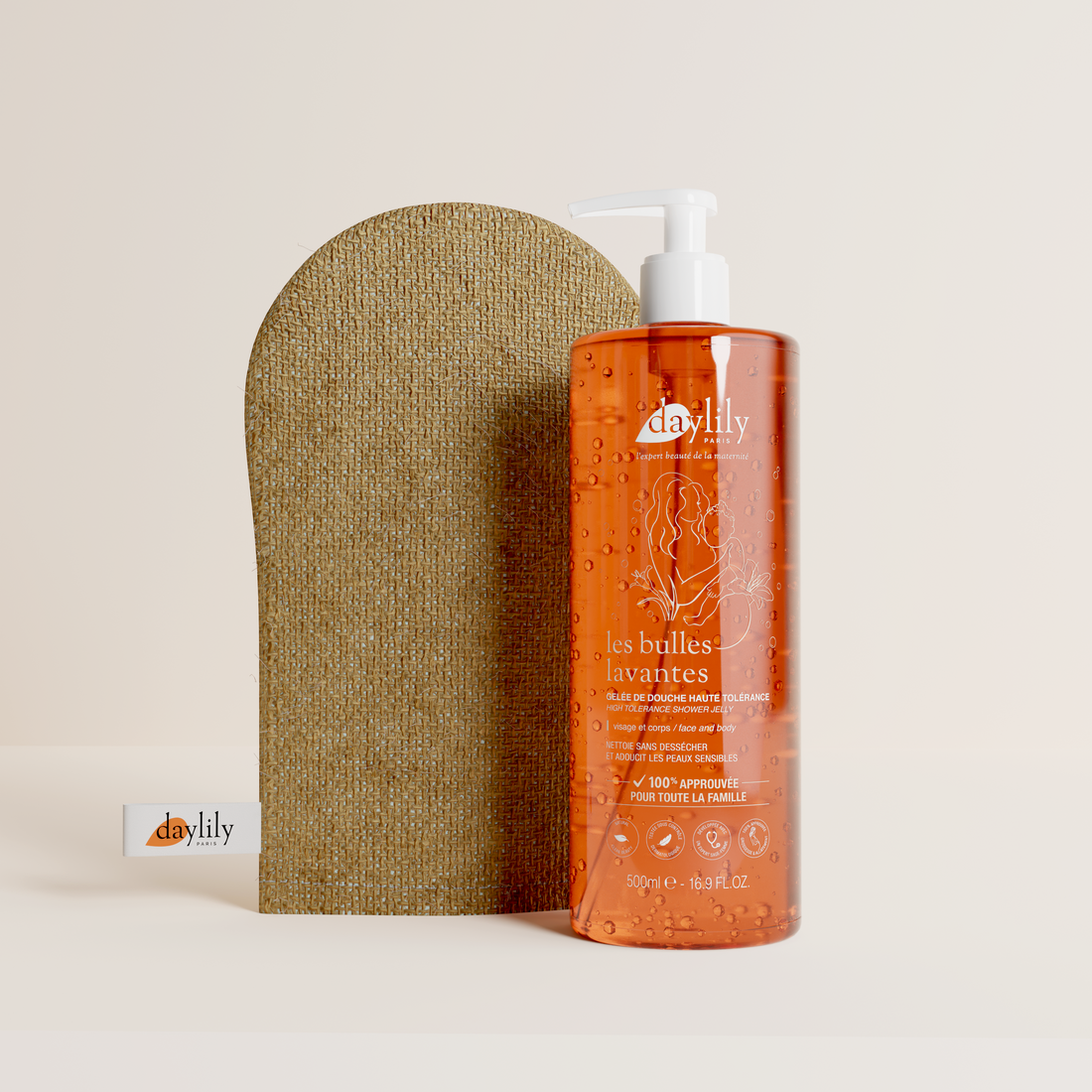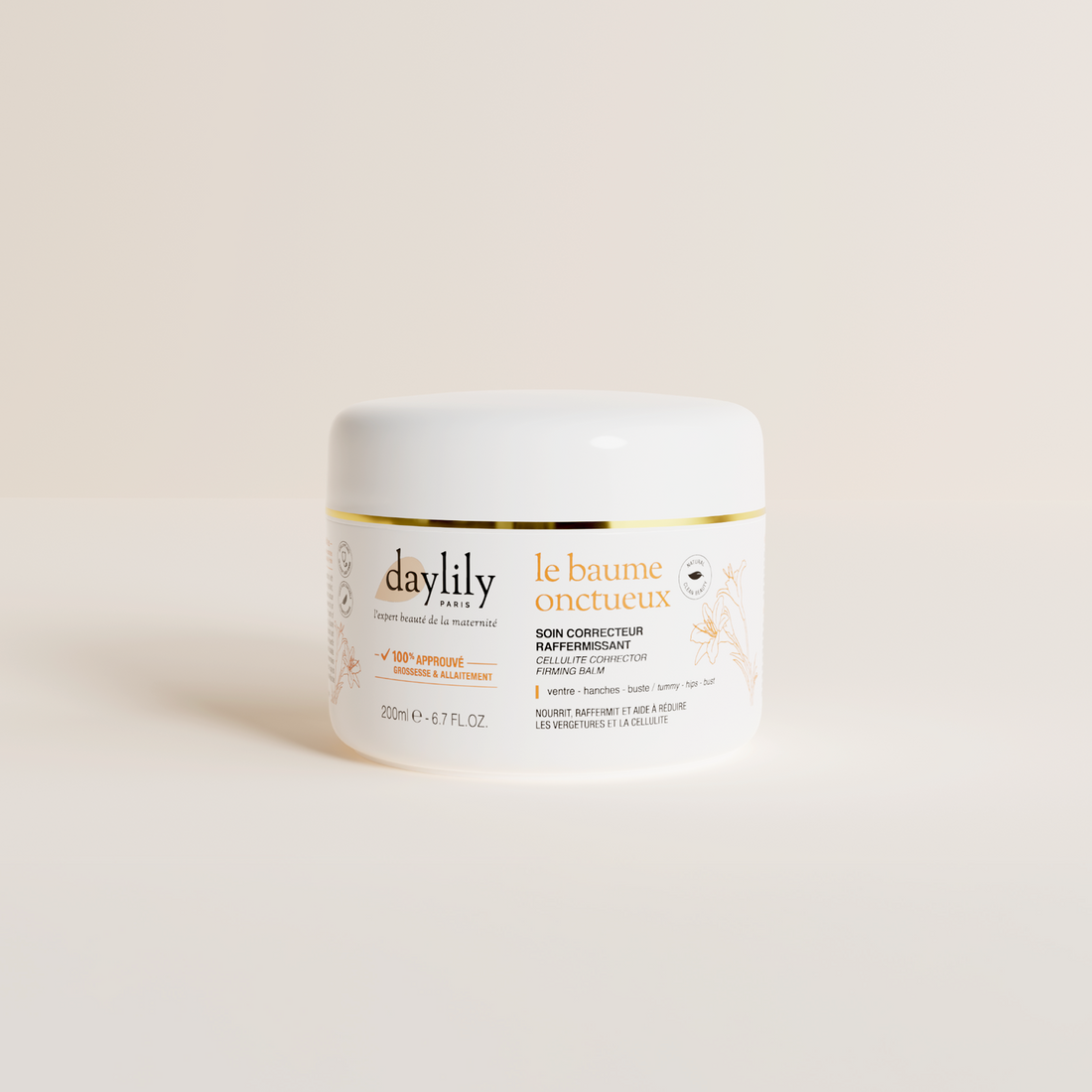The little inconveniences that go hand in hand with pregnancy are numerous. Among them, water retention ! While expecting a baby, some women see their calves, ankles, hands, and sometimes even the rest of their body “swell” . To the pounds of pregnancy – not always easy to bear – are added the pounds of water retention, and the numbers on the scale soar.
- Where does water retention come from during pregnancy?
- Our ten tips for reducing water retention during pregnancy
Where does water retention come from during pregnancy?
Water makes up almost 60% of our weight. The body is naturally responsible for regulating the presence of water, managing its distribution and eliminating it, for example through perspiration. During pregnancy, the presence of water in the body increases to meet the needs of the future mother and baby. At the same time, hormones do their thing : progesterone disrupts venous return, blood circulation functions less well than usual, blood stagnates more, and water is less well eliminated.
During the third trimester, the phenomenon of water retention can increase: the uterus has taken on significant proportions, and compresses the vena cava. This large vein's mission is to bring blood from the lower limbs towards the heart. Blood return becomes less efficient, and water stagnates in the legs, ankles and feet. You guessed the rest: water retention appears or becomes more significant!
Water retention results in swelling or edema on the body, feelings of heaviness and discomfort . You will also notice that your skin retains the marks of your fingers when you press on areas that over-store water.
Retention is a problem frequently encountered by pregnant women. If it causes discomfort and feelings of heaviness, it is also benign and will disappear after childbirth . Of course, if water retention is accompanied by significant pain, or progresses quickly, it is advisable to consult without delay because it can be a symptom of other pathologies, such as phlebitis, or pre-eclampsia , feared by pregnant women.
If you experience water retention during your pregnancy, you should know that it is possible to limit the extent of the phenomenon and reduce the feeling of discomfort by adopting simple daily actions.
Our ten tips for reducing water retention during pregnancy
1. Get moving!
Of course, there is no question of practicing a violent or traumatic sport like tennis or running until the end! But it is recommended to have gentle physical activity , to stimulate blood circulation , and better drain toxins and fluids .
Walking , for example, is ideal because it is a non-traumatic activity , which can be practiced at all stages of pregnancy. Swimming is also a good choice, because you don't support your body weight during exercise, and the water acts like a mini-massage ! On the other hand, favor crawl over breaststroke to avoid back problems...or their worsening.
Generally speaking, keep in mind that a static standing position should be avoided, as well as a cross-legged sitting position because it hinders blood circulation.
2. Massage yourself or be massaged, without moderation
To activate blood circulation and reduce water retention, there's nothing like a good massage! Certain institutes or physiotherapists can offer you draining massages , perfectly adapted to your condition as a pregnant woman!
At home, get into the habit of massaging your legs morning and evening, starting at the feet and working your way up the body to activate drainage. At Daylily we have three care products that can be used all over the body : Le Lait Fondant and L'Huile Sensorielle which also have an anti-stretch mark action as well as Le Baume Onctueux (which also offers a firming, anti-cellulite and anti-stretch mark action). stretch marks). Exfoliating can also help activate blood circulation while removing dead skin. Le Gant Sublimateur can be used all over the body thanks to its soft and intense sides, offering better effectiveness of treatments applied after the shower. In the shower, it can be used with our Les Bulles Lavantes shower jelly!

3. Wear support stockings
When your legs are swollen with water, and a feeling of discomfort, you don't always want to lock your calves in compression stockings. However, compression stockings are good allies for a mother-to-be, because they activate venous return and limit the phenomenon of swelling .
Good news: “new generation” compression stockings are much more aesthetic and comfortable than those of our grandmothers and can be worn discreetly. Remember to ask your doctor or midwife for a prescription: they are covered by Social Security for several pairs per year.
4. Drink plenty of water
It's completely paradoxical, we agree, because when we suffer from water retention, we tend to drink as little as possible so as not to aggravate the problem. This is not the case: consuming at least 1.5L of water per day allows stagnant water to circulate in the body and drain toxins. Good hydration will also limit the risk of urinary infections and help the baby's good development, so during pregnancy, water and herbal teas as much as you like !


- Regular price
-
16,90 € - Regular price
-
- Sale price
-
16,90 €
If you are addicted to coffee and tea, you will unfortunately have to reduce your consumption, because these two drinks retain water instead of eliminating it.
5. Not wearing tight clothes
If you suffer from water retention, you may need to make some small adjustments to your wardrobe! Bad news for fans of very close-fitting clothing: clothes that are too tight compress the veins and hinder blood circulation. On the contrary, loose and comfortable clothing will promote good circulation! Likewise, high-heeled shoes should be avoided if you suffer from water retention. I promise, you will find them again after giving birth!
6. Elevate your legs
If you are prone to water retention during pregnancy, elevate your legs as soon as possible to activate circulation. This is a good reason to lie down on the sofa with a cushion under your feet! You can also slightly raise your mattress at foot level to promote good blood circulation during the night.
7. Be careful of salt consumed in excess
While there is no question of completely eliminating it from your diet (in fact it contains important trace elements), you should pay attention to the quantities absorbed because salt promotes water retention. Industrial dishes, cheese, aperitif biscuits and the like should therefore be consumed in moderation.
8. Pay attention to your diet
Carbohydrates, such as white rice, pasta or bread promote water retention. Favor foods with a low glycemic index and opt for a diet that gives pride of place to fruits and vegetables , particularly those that are rich in potassium. Essential for the proper functioning of the kidneys, potassium reduces sodium levels in the body, and helps you eliminate it by increasing urine production. Foods rich in potassium include: asparagus, artichoke, cabbage, sweet potato, spinach, leeks, mushrooms, avocado, bananas, mango ... You are spoiled for choice, and this list is not exhaustive!
9. Sleeping on your left side
Sleeping on your left side helps limit compression of the vena cava, which as a reminder is located on the right side of the body. The blood will thus be more easily returned to the upper part of the body and you will also better supply the placenta and the fetus with blood.
10. It's a cold shower!
It is well known that cold activates blood circulation. Don't worry, there's no question of having a Scottish shower while you're expecting your baby. After your shower, simply remember to pass a jet of cold water over your legs for thirty seconds to stimulate venous return. We agree, it's not always pleasant, but it's devilishly effective in case of water retention!
You will have understood, a few simple rules will allow you to reduce water retention during pregnancy. The key word is to activate blood circulation and promote drainage , and for this all means are good: physical activity, massage, compression stockings, while adopting a good lifestyle and healthy diet . So many actions that will allow you to reduce swelling and the feeling of discomfort, and which, icing on the cake, can only be beneficial in many ways for the growth of this little baby!












